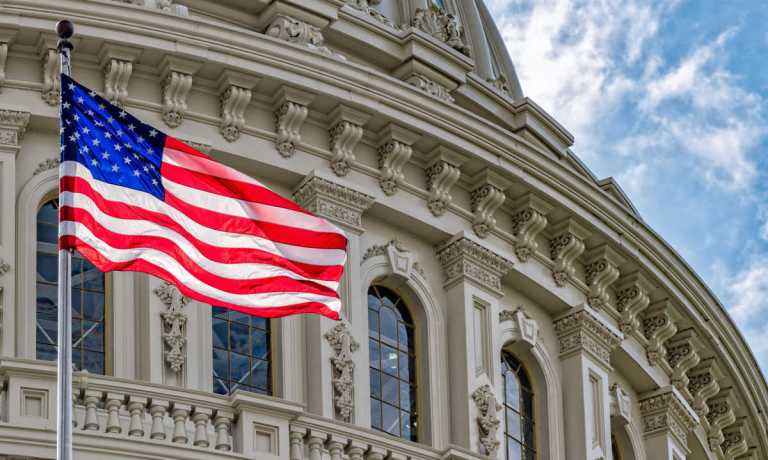Hopes for Crypto Regulations Fade as Midterm Elections Approach

Neither the House of Representatives nor the Senate will pass a crypto regulation bill before the elections next month. That’s a pretty safe prediction, given that neither chamber will be in session again before Election Day on Nov. 8.
And after that, if either chamber flips from Democratic to Republican control almost nothing will get done before the new Congress is seated and in control. But either way, something as weighty as regulation of cryptocurrency is virtually impossible and even a far simpler stablecoin regulatory act is very unlikely unless it is attached to the spending bill that must be passed before the current one expires on Dec. 16.
Particularly as the two legislators doing most of the negotiation on the stablecoin bill, House Financial Services Committee Chairwoman Maxine Waters (D-Calif.) and top Republican Patrick McHenry (R-N.C.), couldn’t agree on several issues, most notably of state versus federal control over what institutions would be allowed to issue the reserve-backed, dollar-pegged digital currencies.
Read also: House Bill Would Ban Algorithmic Stablecoins for 2 Years
That’s despite on-again, off-again news that a deal is near that ran from July through late September — and the immense pressure to do something about stablecoins in the wake of the $48 billion TerraUSD stablecoin’s implosion in May, which dramatically upped concerns about stablecoins’ ability to impact the broader financial as their use becomes more widespread.
Indeed, on Oct. 3, the Federal Reserve Bank of New York suggested in a report on “The Financial Stability Implications of Digital Assets” that even well-backed and resilient stablecoins like USD Coin could increase the run risk of more shaky stablecoins as they are easy to run to.
See more: New York Fed Says Stablecoins Pose Threat to Financial System
Doing It Right
That same day, the Treasury Department’s Financial Stability Oversight Council (FSOC) released a “Report on Digital Asset Financial Stability Risks and Regulation” that concluded, in Secretary Janet Yellen’s words, that “crypto-asset activities could pose risks to the stability of the U.S. financial system” and called for aggressive action to get such legislation passed.
See: Unregulated Crypto Poses Risks to Financial System, FSOC Report Says
Foremost, that means clarifying which federal agency is in charge of the spot market for cryptocurrencies — which means clarifying which crypto assets are and are not securities.
That’s exactly what crypto industry trade groups have been calling for over the past several years. As have investors, who still don’t know if the cryptocurrencies they have invested in will actually end up being securities, as the Securities and Exchange Commission (SEC) claims.
And several proposed bills would do this, including a bipartisan one by the leaders of the Senate Agriculture Committee that would give the Commodity Futures Trading Commission (CFTC) more authority over the crypto spot market. Currently, the SEC has claimed control over every cryptocurrency except bitcoin.
The most serious attempt is the “Responsible Financial Innovation Act” by senators Cynthia Lummis (R-Wyo.) and Kirsten Gillibrand (D-N.Y.), which is a fairly comprehensive piece of legislation that never really had much chance of passing this year as the White House’s own reports on the crypto industry that would form the basis for its legislative recommendations were only due last month under the President’s executive order. And even then, they were only agency-by-agency recommendations, not a formal outline of the type that would allow the White House to meaningfully negotiate a major bill.
“There are a few big bills being debated in Congress” right now, Blockchain Association executive director Kristin Smith said in an Oct. 4 Twitter thread. “We are working to ensure [they] meet the right standards for growth, privacy, and innovation for the crypto ecosystem. There’s still work to do.”
Which isn’t to say she expects a rapid solution to the larger crypto regulation process.
“Crypto is too big to ignore and we are only going to see increased attempts to regulate this space in the coming months and years,” she added. “We are here now and will remain here for that fight.”
For all PYMNTS crypto coverage, subscribe to the daily Crypto Newsletter.